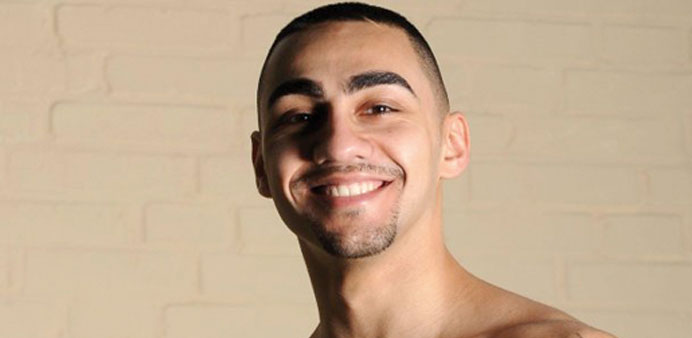DPA/Hamburg
Artem Harutyunyan is on his way up with his career as a boxer. So it seemed odd that, on one recent day, he was in a dimly lit basement of a refugee shelter in a quiet Hamburg neighbourhood. Mattresses were spread on the concrete floor and some punching bags were dangling from the ceiling.
The 25-year-old man of Armenian ethnic background paid a visit along with a number of people from the media and spent his time teaching some basic techniques to a group of Syrian youngsters who face an uncertain future as they await the outcome of their application for asylum in Germany.
“Where these people are now is where we, my family, once had been,” Harutyunyan says, recalling his own story in Germany. “Naturally I don’t know everything because I was still so young then. But my parents told me about it and then later on I was aware of what was going on.”
It was 1991, when he was about 1 year old, that he and his family—the parents and his brother Robert—arrived in Hamburg from the Armenian capital Yerevan. “The war hadn’t come to Armenia yet, but it was going on in Azerbaijan.”
The family had to be patient in awaiting the outcome of their asylum proceedings. “We fought to be able to stay here. Now, I can tell the people here in this shelter that I had once been in their situation.”
But he believes that there is a difference between his situation and that of the newcomers, whose number in this shelter totals some 500.
“The people here have an even more difficult path to go down,” he says.
Next year Harutyunyan hopes to win a medal for Germany at the Rio Olympics. In 2013 he finished third in the European championships, while this year he made it to the world championship final of the Olympic boxing association AIBA in the light welterweight category. So he knows the sport he is teaching.
“I want to help the refugees get to know more about boxing, help them to be able to forget about their worries at least for a moment,” he says.
At the refugee shelter, the boxing training group got organized about a year ago,” notes Caroline Smolny, who has been a social worker at the refugee shelter for the past 17 years.
“I think it’s great that now something is being offered to the singles,” she adds, noting that there are several activities offered to families, women and children, but hardly anything for single people.
Harutyunyan shows five Syrian youths how to strike the punching bag.
Then he practises with them on the hitting pads.
Normally there would have been a number of young men from other countries taking part in the training. But on this day, when they heard that the press and photographers were visiting, they stayed away, fearful that a picture appearing in the media might hurt their asylum proceedings.
Harutyunyan is pleased about how much fun the young Syrians were obviously having. “Their faces are radiant,” he says. Adds Caroline Smolny: “Boxing helps to work off the tensions.”
In her work she gets assistance from a young man from Ingushetia, Arsen Kostoyev, who has been in Germany now for seven years. He had been a boxer in Russia before coming to Germany.
“The lads need this training,” Kostoyev says. “Sometimes life in a shelter can make you aggressive. They shouldn’t beat each other up, but box with each other instead.”
Over the past 12 months, Kostoyev says he has given boxing lessons to about 80 refugees. “It’s really a great thing that we now have such a prominent boxer here like Harutyunyan.”
For his part, Harutyunyan vows that his appearance at the refugee shelter was not just for a few press photos before disappearing again.
“I want more for them. I want to organize something big. The people have so many worries, and some have given up hope. They need courage and some diversion,” the boxer says.
Together with the Hamburg Boxing Association, he wants to organize regular boxing training sessions in a gym with a genuine boxing ring.
“Sports is a branch that people can hold onto so that they don’t fall from the tree,” Harutyunyan says.

